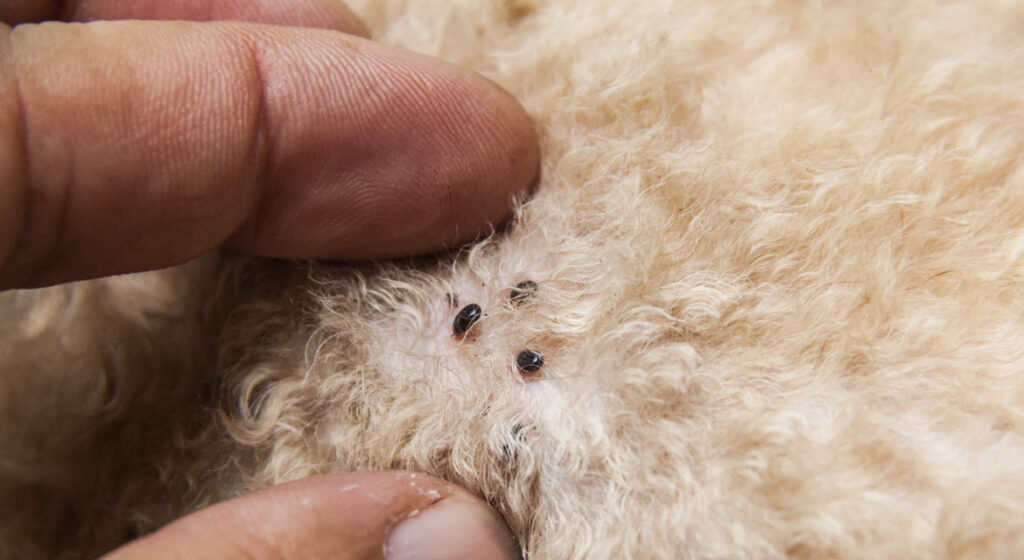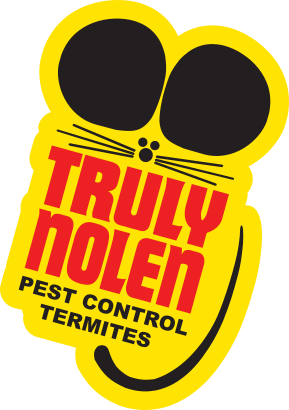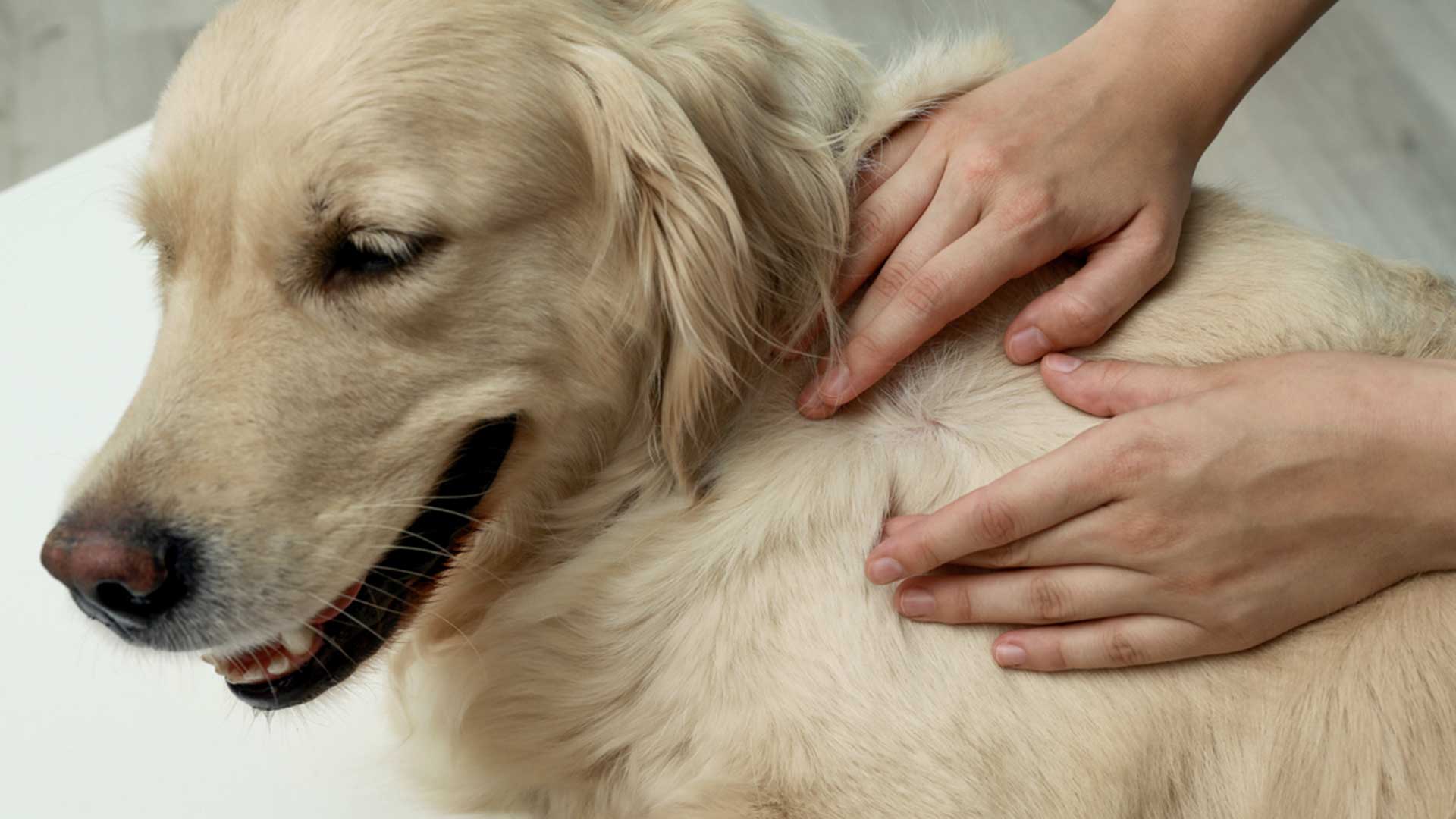
Can I Get Rid Of Fleas On My Own, Or Do I Need Professional Help?
Flea infestations can be a nuisance for both pets and humans. These tiny parasites feed on blood and can cause itching and discomfort. If you suspect that you have a flea infestation, here are three ways you can get rid of them:
- Treat your pets using veterinarian-recommended flea treatments, such as topical solutions or oral medications, and regularly bathe and groom them to remove fleas and eggs.
- Thoroughly clean and vacuum your home, focusing on carpets, furniture, and bedding to eliminate flea eggs, larvae, and adults, and wash pet bedding and linens in hot water.
- Use indoor flea control products or consider natural alternatives, treating areas where fleas hide or lay eggs, and consider treating outdoor areas as well to prevent reinfestation.
Causes of a Flea Infestation
Several factors can contribute to a flea infestation in your home or on your pets. Understanding these causes can help you prevent and treat flea infestations more effectively.
Pets: One of the most common causes of flea infestations is pets. If you have a dog or cat, they are likely to attract fleas. This is because fleas are attracted to warm-blooded animals. Pets provide the perfect host for fleas to lay their eggs and reproduce.
Flea Season: Fleas are most active during warm, humid weather. If you live in an area with a warm climate, your pets are at a higher risk of developing a flea infestation. Flea season typically starts in the spring and can last until late fall.
Wildlife: If your yard is home to wildlife such as raccoons or skunks, they can bring fleas onto your property. These animals can also leave behind flea eggs and larvae, which can hatch and cause an infestation. It’s important to keep your yard clean and free of debris to prevent these animals from making a home on your property.
Outdoor Activities: If you take your pets on walks or hikes, they can pick up fleas from other animals. Check your pets for fleas after outdoor activities and give them a flea bath if necessary.
Poor Hygiene: Poor hygiene can contribute to a flea infestation. If you do not regularly bathe yourself and your pets or clean your living spaces, fleas can thrive in dirty and cluttered environments.
Once you have identified the cause of your flea infestation, it’s essential to take steps to prevent future infestations. This may include proper grooming and hygiene for your pets, regular cleaning and vacuuming of your home, and treating outdoor areas for fleas. In severe cases, you may need to give us a call to help eliminate the infestation. By understanding the causes of a flea infestation, you can take proactive steps to prevent and treat them effectively.

Truly Nolen GUARANTEE
If you’re not completely satisfied, you’ll get a full refund on your most recent service with our 100% money back guarantee.

$50 Off Year Round Pest Control
Truly Nolen is a family-owned company with 85 years of experience providing the best pest control. If you’re not completely satisfied, you’ll get a full refund on your most recent service with our 100% money back guarantee.
How to Get Rid of Fleas on Your Own
If you’ve ever had a flea infestation in your home, you know just how frustrating it can be to get rid of these pesky parasites. Fleas are not only a nuisance to your pets but to you as well since their bites can cause severe itching and allergic reactions. While many people opt to hire professional pest control services, getting rid of fleas on your own is possible and can save you money.
Here are some steps you can take to get rid of fleas on your own:
1. Vacuum your home thoroughly
The first step in getting rid of fleas is to vacuum your home thoroughly. Pay close attention to areas where your pets spend most of their time, like their beds and the areas around them. Fleas tend to lay eggs in these areas, which can hatch and continue the infestation. Once you’ve vacuumed, dispose of the vacuum bag or contents in a sealed plastic bag and throw it away.
2. Wash everything
Your pet’s bedding, toys, and any other fabrics they’ve come into contact with should be washed in hot water. This will kill any fleas, eggs, or larvae on them. It’s also a good idea to wash any human bedding or clothing that may have come into contact with the infestation.
3. Use a flea comb
Using a flea comb can help you remove adult fleas and flea dirt (which looks like tiny black specks) from your pet’s fur. Comb your pet slowly and carefully, being sure to dip the comb in soapy water after each pass to kill any fleas you’ve collected.
4. Use home remedies
Several home remedies can help you get rid of fleas on your own. One effective method is to create a solution of equal parts apple cider vinegar and water and use it to spray your pet and their bedding. Fleas don’t like the acidic smell of vinegar, and it can repel them. Another popular home remedy is to create a solution of lemon juice and water and spray it on your pet’s fur. The citrusy smell can also repel fleas.
5. Treat your yard
If your pet spends time outdoors, it’s important to treat your yard as well. Flea larvae can burrow into the soil, so using a steam cleaner or spraying insecticides can help eradicate any fleas hiding in your yard.
While it’s possible to get rid of fleas on your own, it’s important to note that severe infestations may require calling in the professionals here at Truly Nolen. Keeping your pet on a regular flea control program and maintaining a clean living environment can also help prevent future infestations.
Soapy Water
Soapy water is a simple yet effective solution for getting rid of fleas. Fleas cannot swim, so they cannot survive in soapy water. This makes it an ideal way to drown them and stop them from infesting your home and pets.
To use soapy water to get rid of fleas, simply fill a shallow pan or bowl with warm water and add a few drops of dish soap. Then, place the bowl under a lamp or any other light source. Fleas are attracted to light, so they will jump toward it and fall into the soapy water. The soap will prevent them from jumping back out, and they will drown in the water.
It’s important to note that while soapy water can be effective in getting rid of adult fleas, it may not be as effective on flea eggs or larvae. For these, it’s crucial also to vacuum your home thoroughly and wash all fabrics in hot water.
Soapy water is also a non-toxic solution for getting rid of fleas. Unlike pesticides, it will not harm your pets or family members. However, it’s important to supervise your pet to ensure they do not drink or play in the soapy water.
Overall, soapy water is a simple and effective way to eliminate fleas on your own. It’s affordable, non-toxic, and can be done easily with household items. If you’re dealing with a severe flea infestation, seeking professional help is always recommended. But for smaller infestations, using soapy water can be a quick solution to eliminate fleas.
Hot Water and Spray Bottle Solution
Various solutions are available for getting rid of fleas, but not all are equally effective. Two popular flea control options are hot water and a spray bottle.
Hot water can help kill fleas and their eggs on fabrics and surfaces around your home. You can effectively eliminate the pests by washing your pet’s bedding, linens, and any other materials infested with fleas in hot water. It’s important to use water that is at least 120 degrees Fahrenheit, as this is the temperature required to kill fleas and their eggs.
A spray bottle can also be a valuable tool for getting rid of fleas. Simply fill a spray bottle with water and add a few drops of dish soap, which will act as a surfactant to help the water penetrate the fleas’ protective outer layer. Spray the solution all over your home, paying particular attention to areas where your pet spends a lot of time, such as their bed and favorite lounging spots.
It’s important to note that while hot water and a spray bottle can be effective in getting rid of adult fleas, they may not be as effective on flea eggs and larvae. For these, it’s important also to vacuum your home thoroughly and wash all fabrics in hot water.
While hot water and a spray bottle are considered safe and non-toxic options for flea control, it’s important to follow the instructions carefully and avoid using them in excess. Too much hot water can damage some fabrics while overusing a spray bottle can create a damp environment that promotes mold growth.
If you are having trouble getting rid of fleas on your own, it may be time to consult with us. Our Truly Nolen treatment options are more powerful and effective than DIY solutions. Additionally, if you notice any signs of allergic reactions or other health problems related to flea bites, it’s a good idea to consult with a healthcare provider to determine the best course of action.
Flea Comb and Vacuuming Regularly
Flea infestations can happen to any pet owner. While there are many ways to combat flea infestations, flea combs, and vacuuming are two of the most effective methods. Both strategies allow pet owners to actively control flea populations in their homes and on their pets.
One of the easiest ways to eliminate fleas is by using a flea comb. Flea combs are designed to remove fleas, eggs, and dirt from your pet’s coat. Regular combing not only removes adult fleas but also breaks the flea’s life cycle by removing eggs and larvae.
To use a flea comb effectively, start by filling a bowl with soapy water and having it nearby. Begin combing your pet’s coat, starting at the head and working your way to the tail. Focus on areas where fleas often congregate, such as behind the ears, around the neck, and under the legs. After each stroke, dip the comb into the bowl of soapy water to drown any fleas and prevent them from escaping.
In addition to using a flea comb, vacuuming regularly is essential for flea control. Fleas often lay their eggs in carpets, rugs, and other soft furnishings, which can develop into larvae and, eventually, pupae. These stages can remain in your home for months, making it hard to eliminate all of the fleas in one go.
To get the most out of your vacuuming, vacuum your floors, carpets, and furniture daily. Pay close attention to areas where your pet likes to spend time, as well as dark corners and tight spaces. Use a vacuum with a HEPA filter to trap any live fleas or eggs lingering on surfaces.
By combining a flea comb with regular vacuuming, you can effectively control fleas in your home. Remember that fleas have a life cycle, so it’s important to stay consistent with your flea control efforts to ensure long-term success. If the infestation is severe, contact us to help with your flea control program.
Use of Flea Shampoos and Sprays
Flea shampoos and sprays are another effective way to get rid of fleas on your pets and in your home. Flea shampoos work by killing adult fleas and removing flea dirt from your pet’s coat. When using a flea shampoo, make sure to follow the instructions carefully and thoroughly rinse your pet’s coat to avoid skin irritation.
Flea sprays, on the other hand, are designed to kill both adult fleas and their eggs. They can be used on your pets as well as on carpets, furniture, and other areas of your home. When using a flea spray, it’s important to wear protective clothing, such as gloves and a mask, to avoid inhaling any harmful chemicals.
When choosing a flea shampoo or spray, look for products specifically designed for your pet’s size and weight. Avoid using products meant for dogs on cats and vice versa, as they can harm your pet’s health. Additionally, always read the label carefully and follow the instructions to avoid accidental ingestion or skin irritation.
It’s important to note that flea shampoos and sprays are only a temporary solution to flea infestations. To fully get rid of fleas, it’s vital to implement a comprehensive flea control program that includes regular flea combing, vacuuming, and professional pest control services if necessary.
If you need clarification on which flea control method is best for your pet and home, speaking with your veterinarian or pest control specialist may be helpful. They can provide guidance on the most effective and safe ways to get rid of fleas and prevent future infestations. Remember, keeping your pets and home flea-free not only improves their health and quality of life but also helps create a more comfortable and safe living environment.
Do I Need Professional Help?
Flea infestations can be incredibly frustrating to deal with. Not only are these tiny parasites annoying and uncomfortable for our pets, but they can quickly spread throughout our homes, making daily life unbearable. While many flea treatments are available for pet owners to use on their own, many people wonder if they need professional help to fully rid their homes of these pests.
First and foremost, it’s important to understand the life cycle of fleas. Adult fleas make up just a small percentage of the total flea population in your home – most fleas are represented by their eggs, larvae, and pupae. This means that even if you successfully kill all adult fleas, hundreds of immature fleas could still be waiting to hatch and continue the infestation.
In many cases, a basic flea control program that includes regular vacuuming, flea combing, and using flea sprays and shampoos can effectively keep fleas at bay. However, our professional pest control services may be necessary for more severe infestations. We have access to specialized products that can more effectively kill fleas in all stages of their life cycle, as well as deep cleaning services that can help eliminate eggs and larvae hiding in carpets and upholstery.
If you or your family members have allergies or sensitive skin, exposure to fleas, flea dirt, and flea bites can lead to painful allergic reactions and skin irritation. In these cases, investing in professional pest control services may be well worth the potential health benefits.
The most common symptom of an allergic reaction to flea bites is itchiness. The bite site can become red and swollen, making it hard to resist scratching. Prolonged scratching can lead to open sores, which can get infected, causing further complications. In some cases, the itchiness can extend beyond the bite site, causing a rash or hives to develop on other parts of the body.
For individuals who are highly sensitive to flea bites, an allergic reaction can cause much more severe symptoms. In addition to itchiness, they may experience respiratory problems, including difficulty breathing, chest pain, and coughing. In extreme cases, an allergic reaction can lead to anaphylaxis, a life-threatening condition that requires immediate medical attention.
Pets can also be affected by flea allergies. In dogs and cats, flea bites can cause intense itching and discomfort, leading to excessive grooming and hair loss. If left untreated, the affected areas can become infected, causing further complications.
If you suspect that you or your pet is experiencing an allergic reaction to flea bites, seek medical attention immediately. Treatments may include over-the-counter antihistamines or prescription medications, such as corticosteroids. In some cases, flea allergy dermatitis (FAD) immunotherapy injections may be recommended to help desensitize the body to flea saliva.
Ultimately, the decision of whether to handle a flea infestation on your own or seek professional help will depend on the severity of the infestation, your personal comfort level with using flea products and handling pets, and your overall health and quality of life. If in doubt, contact us for an evaluation and advice on the best course of action.

$50 Off Year Round Pest Control
Truly Nolen is a family-owned company with 85 years of experience providing the best pest control. If you’re not completely satisfied, you’ll get a full refund on your most recent service with our 100% money back guarantee.
Frequently Asked Questions
Can fleas infest my home even if I don’t have pets?
Yes, fleas can infest homes even if there are no pets present. Fleas can hitch a ride on clothing, shoes, or other animals, and they can also be brought inside on infested items such as rugs or furniture. Learn More!
How do I know if I have a flea infestation?
Signs of a flea infestation include flea bites on humans or pets, seeing live fleas jumping or crawling on surfaces, finding flea dirt (small black specks) on bedding or pet fur, and pets exhibiting excessive scratching or discomfort.
Are fleas harmful to humans?
While fleas primarily target animals, they can still bite and irritate humans. Flea bites can cause itching, redness, and in some cases, an allergic reaction. Fleas can also transmit diseases such as murine typhus and Bartonella (cat scratch disease).
How long does it take to eliminate a flea infestation?
The time required to eliminate a flea infestation varies depending on the severity and treatment methods used. It typically involves multiple treatments over a few weeks to ensure the elimination of fleas at all life stages, including eggs, larvae, pupae, and adult fleas.
Can I get rid of fleas on my own, or do I need professional help?
While there are DIY methods available, severe or persistent flea infestations often require professional assistance. Pest control professionals have the expertise and specialized treatments to effectively eliminate fleas, address hidden infestation areas, and provide guidance on preventing future infestations. Learn more about fleas

